“The 1992 release of Living in Bondage has been widely touted as the beginning of new Nollywood as we know it. This was when Nigerian filmmaking transitioned into portable can-be-watched at home VHS-recorded movies. And as viewing options transformed from clunky VHSs to lightweight CD-ROMs and subsequently to ubiquitous internet-based streaming platforms, Nollywood has also evolved to include new stories, actors, production techniques, production crews and filmmakers. While most of these transitions and players have been captured in books, documentaries and other media formats, little to nothing has been done to document the filmmaking process the Nollywood way.
What this implied was that new and aspiring filmmakers had no handbook they could turn to for guidance on what they need to know, have and be to produce a movie in Nigeria. Such newbies could only rely on snippets from interviews or if lucky, studying at a filmmaking school or getting a chance to learn practically by working on a movie set. Although studying and learning by doing have advantages, they do not give the benefit of drawing from the wealth of experience of multiple veteran filmmakers at the same time, which limits new filmmakers’ worldview and consequently the quality of work they produce.
Having identified and seen the need to close this gap, Seun Oloketuyi embarked on an audacious project, the result of which is this book. In Making Movies the Nollywood Way, Seun set to answer seven essential questions, the answers of which would set aspiring and new filmmakers on the path to success: 1. What does the filmmaking process entail? 2. What is filmmaking in Nigeria like? 3. How does timing work in Nollywood? 4. What funding options are available, and budgeting considerations should a Nigerian filmmaker factor in? 5. What challenges, in addition to location scouting, should filmmakers watch out for? 6. What are the key ingredients for success and marketing in Nollywood? And finally, how does a typical day on set look like for a Nollywood filmmaker?
To answer these questions, Seun turns to the “who’s who”, the major players, the ace directors and filmmakers across Nollywood with decades of experience and scores of movies in their portfolios. From Tope Oshin to Biodun Stephen, Ibrahim “Itele” Yekini, Robert Peters, Wale Adenuga, Tade Ogidan, Zeb Ejiro, Ayo “AY” Makun, Emem Isong, Zik Zulu Okafor, Rogers Ofime, Fidelis Duker, Lancelot Imasuen, and Ali Nuhu. Thankfully, these movie afficionados do not hold back. From having to work with tight or non-existent budgets to battling louts who frustrate film shoots to identifying knowing the right stories that captivates the Nigerian audience. The unvarnished truth is laid bare and the joys and frustrations of filmmaking the Nollywood way are exposed, with the hope of steering the course of the next generation of filmmakers
I am not surprised at what Oloketuyi has documented. Rather, I find myself asking, what took him so long? I have known and collaborated with Mr Oloketuyi for nearly three decades. I have followed with admiration the great work he has been doing in ensuring the Nigerian film industry gets the accolades and recognition due it. This was part of why he established the “Best of Nollywood” Awards in 2009, to annually recognise outstanding achievements in Nollywood. Having dabbled into filmmaking himself, Seun is able to empathise with filmmakers and with his decades of experience working in the industry he knows where the shoe pinches.
In writing this book, Oloketuyi has further shown that he is concerned not only about the present but the future of Nollywood. This book is a timely resource for everyone who is interested in filmmaking in general and especially filmmaking the Nigerian way. I urge aspiring, young and new movie makers to read, imbibe and apply the copious lessons it has to offer. As they say, experience is the best teacher, but it doesn’t necessarily have to be one’s own experience. Reading this book will ensure new filmmakers do not need to reinvent the wheel by waste time, money, and other resources in navigating the filmmaking business in Nigeria. With this book, you do not get frustrated before you even begin like is the experience of many people.
This book is also recommended to decision makers, policy makers, government agencies and other stakeholders who have the power to shape and influence the filmmaking industry. Tales of poor funding and other infrastructural deficits are rife within this book, begging for an urgent intervention to promote the survival and sustainability of Nollywood. A well-functioning Nollywood is essential if the next generation of thespians and film production experts are to embrace it as a career path. It if critical to the future of the country, and the urgent need for it to diversity its economy and make harness the endless potential in this largely privately motivated industry.
Niran Adedokun
Author of Ladies Calling the Shots

 BIG STORY4 days ago
BIG STORY4 days ago
 BIG STORY4 days ago
BIG STORY4 days ago
 BIG STORY5 days ago
BIG STORY5 days ago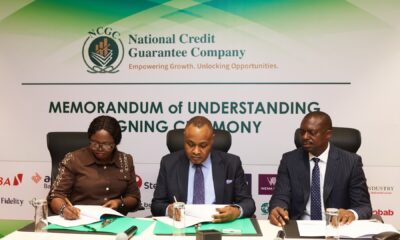
 BIG STORY2 days ago
BIG STORY2 days ago
 BIG STORY4 days ago
BIG STORY4 days ago
 BIG STORY21 hours ago
BIG STORY21 hours ago
 BIG STORY5 days ago
BIG STORY5 days ago
 BIG STORY1 day ago
BIG STORY1 day ago





















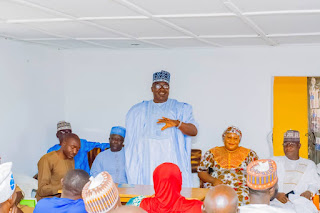

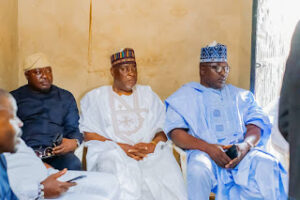
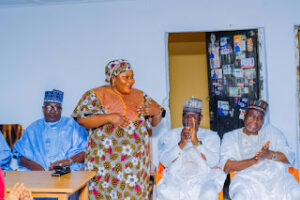
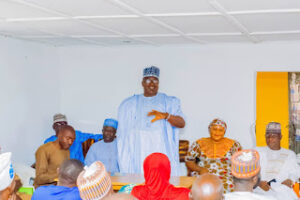



Ajibola tunji
August 11, 2016 at 6:57 am
Good news